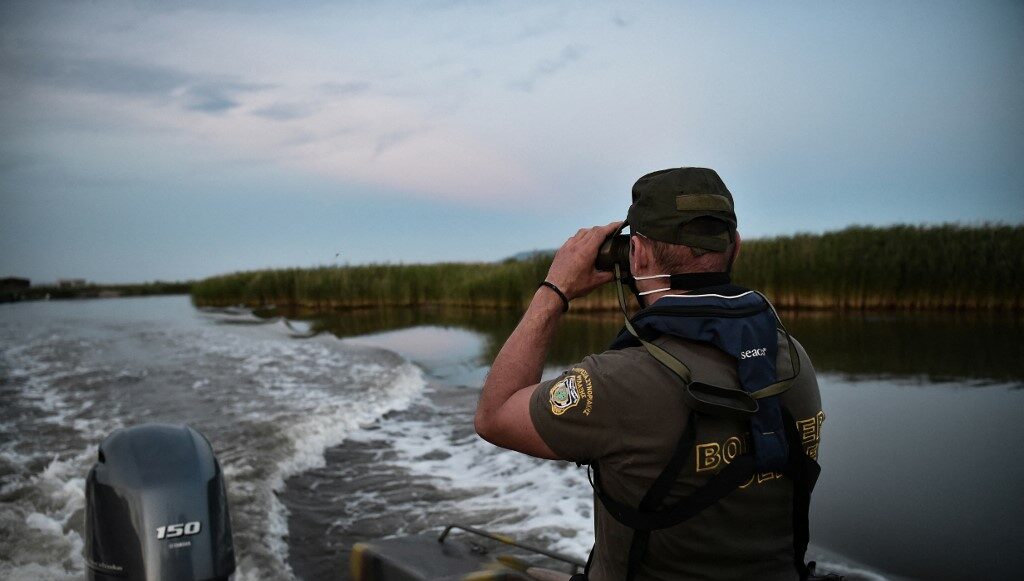A video showing a group of asylum seekers from Turkey that included several children being subjected to rough treatment by Greek law enforcement officers has sparked outrage on social media, with Greece subsequently accepting the group’s asylum requests.
The video, shared on Twitter by activist Mehmet Ali Uludağ, shows asylum seekers who fled to Greece via the Evros River being mistreated by Greek officers and having their mobile phones seized.
Çok Acillll! Görüntüler ilk kez bu kadar net!
Yunanistan tarafına geçen kadın ve çocukların bulunduğu Türkiye’li mülteciler şu anda bu şiddete maruz kalıyor. Aldığımız bilgilere göre deport merkezine götürülüyorlar. Lütfen yardım edin #stoppushbacks @RebHarms @RefugeesUnknown pic.twitter.com/q6bXwTtfCo— Mehmet Ali Uludağ (@MAliuludag_) November 28, 2022
According to a tweet by journalist in exile Sevinç Özarslan, there were 16 people in the group of asylum seekers, including a family with a 3-year-old named Nevzat Ömer Esen, and they were expected to be pushed back to Turkey from Greece’s Isako village in the Evros region.
BEBEK DE VAR
16 people, including a family with a 3-year-old baby (Nevzat Ömer Esen), face push back risk in Greece’s Isako. They are fleeing TR. Pushed-back people are put in prison afterwards in TR. Please stop pushbacks. @philippe_dam @EU_Commission pic.twitter.com/i85y2MhYmk
— Sevinç Özarslan (@sevincozarslan) November 28, 2022
In another video posted on social media, which was taken before the Greek security forces arrived, people are seen hiding on an embankment and calling out their names and those of their children. Several of the asylum seekers state that they and their children feel very cold. A third video shows people in a transport vehicle, where a man who says his name is Ali Korkmaz says they will be deported.
Şu an arkadaşlarımız yunan polislerince deport merkezine götürülüyor. Lütfen seslerini duyurabilir misiniz?? pic.twitter.com/YT83o0owBI
— Ali (@alilts_) November 28, 2022
Many users shared the video on social media on Monday, stating that refugees continue to face violence and pushbacks in Greece and calling for punishment for Greek authorities’ violent policies carried out against people seeking protection in their country.
Many also emphasized that the dissidents pushed back to Turkey are accused of terrorism and face torture and long periods of imprisonment in a large majority of the cases.
A few hours later Uludağ said, citing the asylum seekers’ lawyers, that their asylum requests were accepted by the Greek authorities after they were taken to the Isako Police Station.
Görünen görünmeyen kahramanlara sonsuz teşekkürler. Elhamdulillah bu mazlumların inşaallah iltica talepleri kabul edildi.
İyki varsınız güzel insanlar Sizi Seviyorum ❤️❤️❤️
Beklenen çok güzel yarınlara bir an önce kavuşmak ümidi ve duası ile… https://t.co/bD8rgXrOhn— Mehmet Ali Uludağ (@MAliuludag_) November 28, 2022
Journalist Erkan Pehlivan, who covered the development in a news story for a German newspaper, said in a tweet that Greek authorities gave up on the pushbacks only after videos showing the Turks being roughly treated by Greek soldiers spread on social media in a short period of time.
Bir grup 🇹🇷 yunan askerleri tarafından darp ediliyor ve #pushback edilmek için götürülüyor.Kısa zaman içinde twitter´de bunun vidoaları yayılıyor ve yunan makamları pushback´ten vaz geçiyor.Avukatın biri bunu haberlerini yapma diyor.İnanılacak gibi değil! https://t.co/WEw3zFVL0F
— Erkan Pehlivan 🏳️🌈 (@erkanpehl) November 28, 2022
According to a Eurostat report for 2008-2020, Turkish citizens are among the top asylum seekers in EU countries, ranking seventh in a list of countries whose citizens sought asylum in the EU in 2020.
Most of the asylum seekers flee Turkey due to facing charges related to their alleged links to the Gülen movement, a faith-based group inspired by Muslim cleric Fethullah Gülen.
The movement is accused by the Turkish government and President Recep Tayyip Erdoğan of masterminding a failed coup and is labeled a “terrorist organization,” although it strongly denies involvement in the coup attempt or any terrorist activity.
Some of the asylum seekers from Turkey have been arrested by Turkish security forces; some have been pushed back to Turkey by Greek security; and others have perished on their way to Greece.
Interviews and documents received from lawyers in Greece and Turkey as well as from the family members of victims and the victims themselves, allege that Greece carried out at least 233 illegal pushbacks of Turkish nationals between May and December 2021 alone, compared to 98 pushbacks tracked in 2019.
All of those pushback victims fleeing persecution in Turkey made it to Greece by crossing the land or sea border. They shared their locations with lawyers or family members via messaging apps, or sent pictures and videos of themselves in Greece, in a bid to prove that they had arrived in Greek territory and to avoid being returned to Turkey.
Pushing refugees back to countries they fled is illegal under the principle of non-refoulement, which forbids a country from forcing refugees or asylum seekers to return to a country in which they are liable to be subjected to persecution. Athens has continually denied allegations about the practice.
